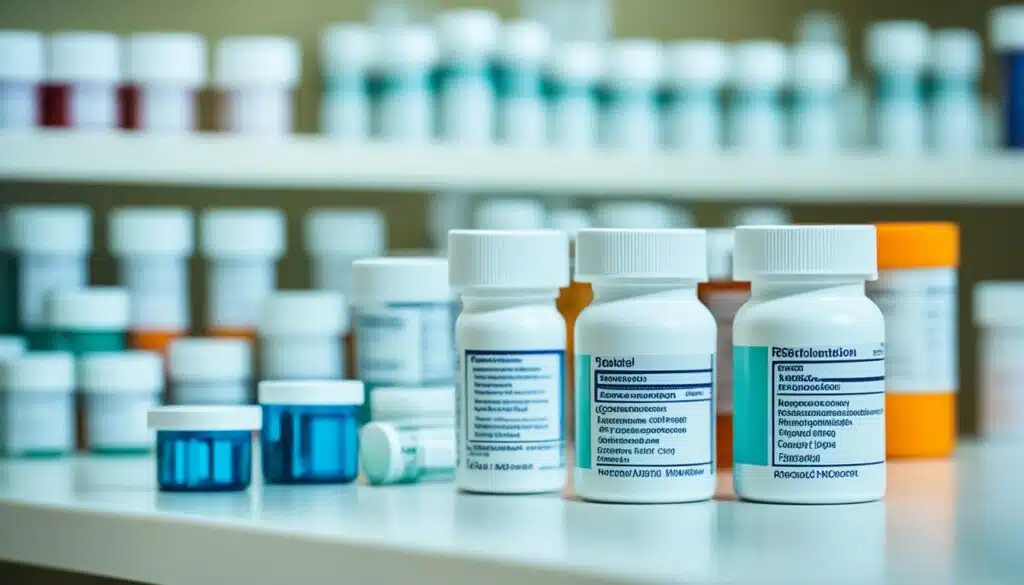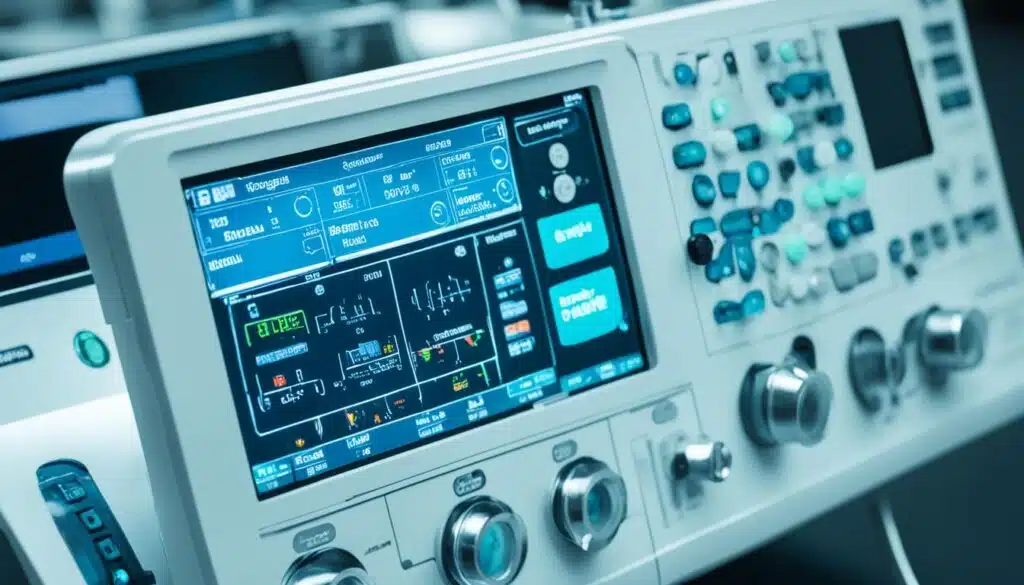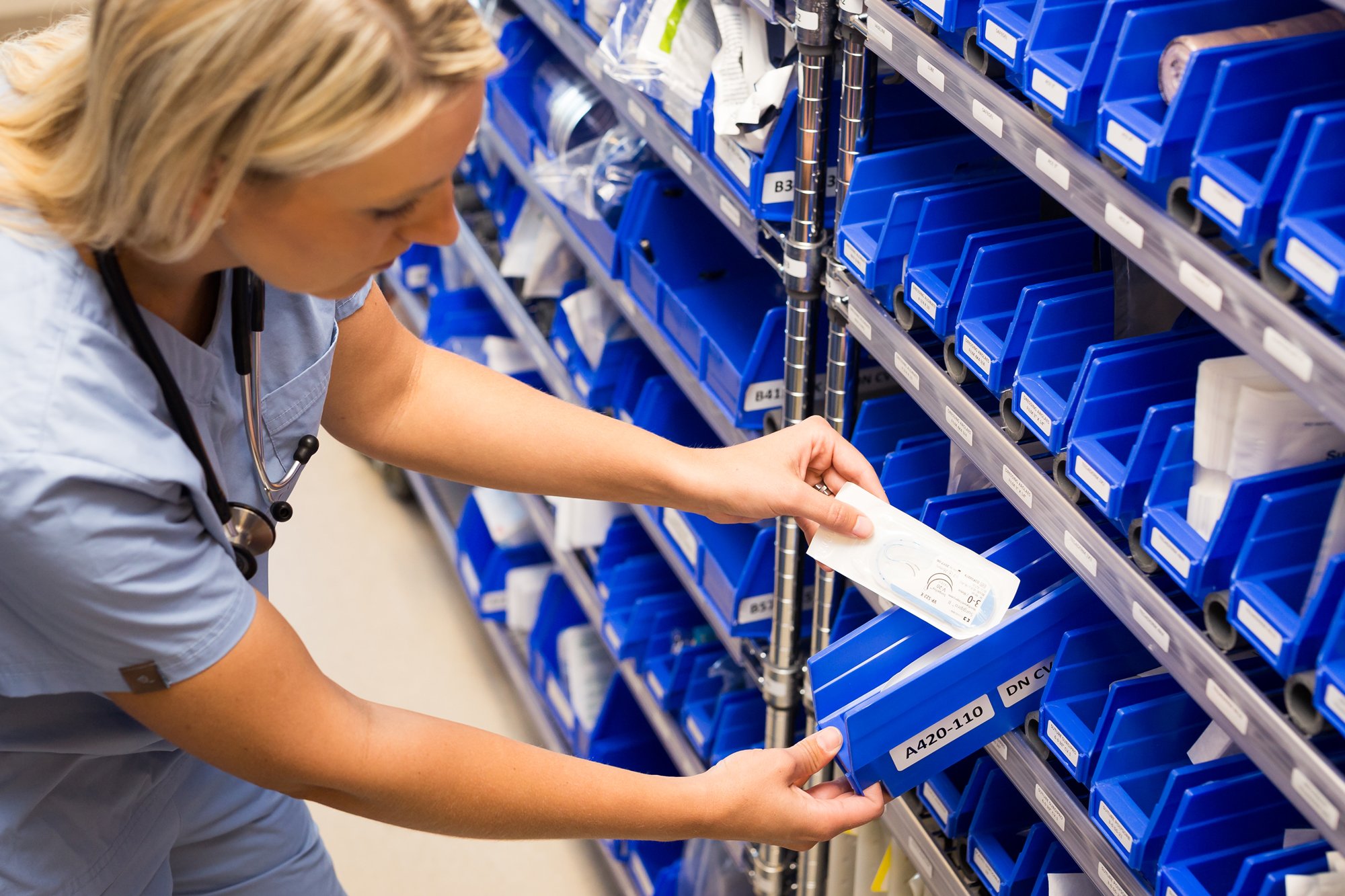Home care means having the right medical supplies ready. A good first-aid kit is a must, with things like bandages, antiseptic, and medicines. Along with this, it’s vital to keep personal prescriptions, over-the-counter meds, special equipment, and a plan for buying more supplies. For proper home medical care, learn how to use advanced tools. Also, make sure you can pay for the things you need.
Key Takeaways
- A well-stocked first-aid kit is essential for home care, providing basic medical supplies.
- Personal prescriptions and over-the-counter remedies are crucial for managing ongoing health conditions.
- Specialized medical equipment and supplies may be needed for more complex home care requirements.
- Maintaining and replenishing home medical supplies is important for ensuring continuous access to necessary items.
- Understanding payment options is key to securing the appropriate medical supplies for home care needs.
Importance of a Well-Stocked First-Aid Kit
A well-stocked first-aid kit is key to any home’s safety plan. It helps with quick fixes for injuries or sudden sickness. Having one is vital for all families.
Basic Supplies
A proper first-aid kit should have some key items. This includes:
- Adhesive bandages in various sizes
- Antiseptic wipes or sprays to clean wounds
- Gauze pads and rolls for dressing wounds
- Medical tape to secure bandages
- Scissors and tweezers for minor procedures
- Thermometer to monitor body temperature
Medications
It’s good to include some medications too. These can help with usual problems:
- Pain relievers, such as acetaminophen or ibuprofen
- Antihistamines to manage allergic reactions
- Anti-inflammatory drugs to reduce swelling and inflammation
- Antacids to soothe digestive issues
Emergency Items
Don’t forget about important emergency items:
- Contact information for healthcare providers, emergency services, and poison control
- Medical history forms for each family member
- Emergency phone numbers and instructions for seeking immediate medical attention
A ready first-aid kit means better handling of medical issues. It covers everything from small cuts to big problems. This kit is crucial for fast care until doctors can help.
Personal Prescriptions and Medications

For those with chronic illnesses or who need regular meds, keeping a supply of their prescriptions is key. It’s vital to have a one-month supply at home. This helps ensure you can keep up with your treatment if you get sick or can’t go out. Stocking up on personal medications and prescriptions keeps your chronic conditions under control. Plus, it stops any problems with your home medical supplies.
It’s crucial to keep track of your personal medications and prescriptions. Make a list of what meds you take, how much, and when you need them. Keep your meds in a cool, safe place. This keeps them working well and safe to use.
Not just your usual meds, but having some over-the-counter meds handy is smart too. Fill your shelves with painkillers, anti-inflammatories, and drugs for tummy aches or allergies. With these home medical supplies, you can handle small health issues without going out.
Organizing Your Medications
Here are a few tips to keep your personal medications and prescriptions neat:
- Make a detailed list of your meds, with names, doses, and when to get more.
- Get a medicine organizer to stay on top of your daily doses.
- Keep your meds in a cool, dry spot, hidden from light and dampness.
- Always check if your meds are expired and switch them out as needed.
Managing your personal medications and prescriptions well is essential. It ensures you’re ready for any health challenge, even surprising ones. With a little effort, you can have the right home medical supplies to stay well.
Over-the-Counter Remedies

It’s smart to have a mix of over-the-counter (OTC) medicines at home. They can help with many health issues. These include pain, allergies, and colds.
Common OTC Medications
Having the right OTC medications in stock is key. Consider keeping items like:
- Pain relievers for headaches and muscle aches.
- Antihistamines to ease allergy symptoms.
- Cough and cold meds for respiratory issues.
- Antacids for heartburn and laxatives for constipation.
With these medicines at home, you can tackle minor health issues. This saves you a trip to the doctor, which is extra helpful when getting to healthcare is hard.
| OTC Medication | Purpose | Examples |
|---|---|---|
| Pain Relievers | Alleviate headaches, muscle aches, and minor pains | Acetaminophen, Ibuprofen, Naproxen |
| Antihistamines | Provide relief for allergies and hay fever | Cetirizine, Loratadine |
| Cough and Cold Medicines | Manage respiratory symptoms | Decongestants, Expectorants, Cough Suppressants |
| Antacids | Soothe occasional heartburn and indigestion | Tums, Rolaids, Pepto-Bismol |
| Laxatives | Help with occasional constipation | Miralax, Dulcolax, Senna |
Over-the-counter meds let you handle many health issues easily. Faster healing and fewer doctor visits are big pluses. They keep your home health cupboard filled and you feeling well.
Specialized Medical Supplies
Home medical supply kits can vary based on a person’s medical needs. They might need more than just a basic first-aid kit. This could include items like blood pressure monitors, pulse oximeters, thermometers, and other diagnostic or monitoring devices. These tools help keep track of the patient’s health at home.
Essential Equipment
Important medical equipment for home care includes:
- Blood pressure monitors for hypertension
- Pulse oximeters to check oxygen levels
- Thermometers for temperature checks
- Glucometers for diabetes
- Nebulizers for breathing issues
- Wound care supplies such as bandages and antiseptics
Auxiliary Supplies
The home medical supply kit goes beyond essential equipment. It should also have auxiliary supplies to make the patient more comfortable. These could be:
- Mobility aids like walkers or wheelchairs
- Personal protective equipment (PPE) which includes gloves and masks
- Incontinence products such as diapers
- Heating pads or ice packs for pain
- Pill organizers for medications
Having a full stock of these supplies helps people manage their health and stay independent at home.
Handling Complex Medical Equipment

Some patients might need advanced medical care at home. Caregivers could need to deal with oxygen tanks, IV systems, or specialized beds. It’s very important to be trained well and follow the maker’s instructions. This is key to using complex medical equipment safely and rightly at home.
Take care of complex medical devices for them to last long and work well. Caregivers should know how to clean, calibrate, and store the equipment right. They should also check it often and fix it quickly if there’s a problem. This stops accidents and keeps home hospital care running smoothly.
Being safe is very important when you use advanced medical tools at home. Caregivers must work hard to keep the area clean and stop infections. They also need to make sure the equipment is safely put and help prevent falls. Learning a lot and watching over everything are ways to keep using complex medical equipment at home safely.
“Proper training and adherence to manufacturer instructions are crucial to ensure the safe and effective use of complex medical equipment in the home setting.”
Dealing with complex medical equipment for home hospital care can seem scary. But, with the right info and tools, caregivers can give their loved ones the care they need. They can also make sure their home is a safe place.
Medical Supplies

Getting the right home medical supplies is now easier with online shopping. Many stores offer direct delivery. This means less time spent going to pharmacies. Online shopping for medical supplies is great for those with long-term health needs. It makes keeping an inventory simple. Patients always have what they require close by.
Choosing the right online store is crucial. Pick ones that are known for quality, quick delivery, and good customer service. This ensures a smooth process without visiting several stores. Plus, online shops often have tips on using and looking after medical devices. This is very helpful for those who are new to self-care.
“Accessing the right home medical supplies is key for a good life when dealing with serious health issues. Thanks to online methods, everything is much easier.”
For those looking after loved ones, online medical supply shopping is a blessing. It lets them focus on caregiving. There’s no need to stress over low supplies.
Maintenance and Replenishment

Keeping a well-stocked medical supply kit at home is key to good care. You should check for and replace expired items. Keeping track of what you have and what’s been used helps maintain safety and effectiveness. Managing supplies is crucial for home care. You should know what and how much you have. This lets you restock before you run out. It ensures you have what you need, when you need it.
Monitoring expiration dates is a must. Medicines and some equipment are not safe after their expiration dates. By checking these dates often, you keep your kit reliable and safe. For easy restocking, try a checklist or system. This reminds you to check supplies regularly. Being proactive means your medical kit will always be prepared for emergencies.
| Medical Supply Maintenance Checklist |
|---|
|
Follow these tips for ongoing care of your medical kit. With a carefully managed and stocked kit, you can face any health situation with confidence. It prepares you for both small and large health needs.
Also Read : Jugular Venous Distention: Bridging The Gap Between Theory And Practice
Securing Proper Home Medical Supplies
Getting the right medical supplies for home use can cost a lot. But, patients and their caregivers can look into various ways to pay for them. This ensures they get what they need for home healthcare.
Payment Options
Start by checking your insurance. Health plans like Medicare and Medicaid often cover needed supplies. Talk to your insurer to learn what’s covered and how to get it. If you don’t have enough coverage or face high costs, look for other ways to pay. Non-profits or government programs might help with fund essential supplies. It’s important to explore these options for support.
FAQs
Q: What are the essential medical supplies for home care?
A: Essential medical supplies for home care include items such as wound care supplies, mobility aids like canes or walkers, medication management tools, and hygiene products.
Q: How can I order home health care products?
A: You can order home health care products online through our website or by calling our customer service team for assistance.
Q: What factors should I consider when choosing a health care product?
A: When choosing a health care product, consider factors such as the quality of the product, its effectiveness for your specific needs, customer reviews, and the reputation of the brand.
Q: Do you offer delivery services for health care products?
A: Yes, we offer delivery services for health care products to ensure convenience for our customers. You can also opt for expedited shipping if needed.
Q: What types of mobility aids are available for purchase?
A: We offer a range of mobility aids including scooters, wheelchairs, and power lift chairs to assist individuals with mobility challenges.
Q: Can I find home health care supplies in North Carolina?
A: Yes, we provide home health care supplies in North Carolina, with options for in-store pickup or delivery based on your preference.
Q: How do I know if a health care product is of high quality?
A: You can determine the quality of a health care product by checking for certifications, reading customer reviews, and consulting with our knowledgeable team for recommendations.





